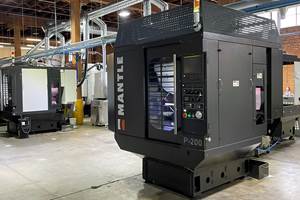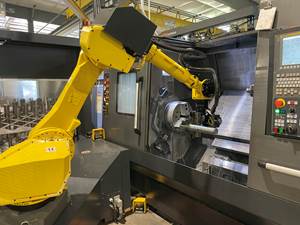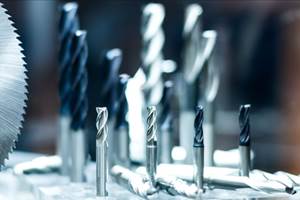Automating Software Ends Scheduling Nightmares For Job Shop
When Jean Pitzo stepped up to the CEO position of Ace Metal Craft in 1989, she found she had also stepped into a scheduling nightmare.
Share





When Jean Pitzo stepped up to the CEO position of Ace Metal Craft in 1989, she found she had also stepped into a scheduling nightmare. Ms. Pitzo faced an on-time delivery rate of 26 percent. All scheduling was done manually. The customer who complained the loudest got their order scheduled next. Customers were getting agitated and everyone wanted answers about missed delivery dates. She decided to evaluate, integrate and possibly modify their business practices.
Ace Metal Craft is a fabricator of stainless steel for original equipment manufacturers who sell to the food and pharmaceutical industries. Since 1961, Ace has operated as a true job shop, having no product line of their own. When Jack Lichter bought the company in 1982, he began investing in technology such as new equipment and expanding the facilities. But as the business grew, the added production strained Ace's manual processes. Fortunately, Mr. Lichter, former CEO and Ms. Pitzo's father, was already aware of the problems with the outdated system and had begun the search for an automated business system.
Back in 1983, all scheduling orders and routings were both organized and filed in the head of one person--the shop floor manager. As the company grew, they had to rely on manual paper processes to schedule and track the jobs. This system did not allow for shop floor or customer changes, nor could it pinpoint deadlines. To make changes and answer customer questions of "when will it be done," the shop floor manager would have to walk the floor to make the changes and find the answers. Since many customers reacted negatively to the 74 percent missed delivery rate, the shop floor manager spent his time expediting. The bottom line was--no profit.
Then in 1989, Ace Metal Craft started using Symix, a fully integrated high-performance business management system for discrete manufacturers, from Symix, in Columbus, Ohio. The scheduling functionality in Symix not only computerized Ace's shop floor schedules, but also charted the manufacturing steps and plant load. This functionality gave Ace insight into the shop floor and allowed for changes to be made quickly and accurately. With this insight, Ace improved their on-time delivery rate three times, from 26 percent to 80 percent, in four months. As a result, revenue has increased by 20 percent annually.
Longtime Ace customers gained confidence and now when a customer calls in asking about their order, Ace can immediately identify where the job is in the cycle and pinpoint a delivery date.
Additional benefits include resolving difficulties with Ace's manual cost accounting process, which was unable to determine whether any profit had been made until weeks after the product had shipped. Now they can know immediately, or within minutes, what to invoice the customer, instead of waiting for weeks to add up the order cost and then invoicing.
The benefits of automating both scheduling and costing has helped Ace put its old nightmares to rest. The company is growing financially and coming closer to its dream of 100 percent on-time delivery. "When you deliver the product on time, you move more product, make customers happy, they come back and spread the word, and the bottom line reflects that," concludes Ms. Pitzo. MMS
Related Content
DN Solutions Responds to Labor Shortages, Reshoring, the Automotive Industry and More
At its first in-person DIMF since 2019, DN Solutions showcased a range of new technologies, from automation to machine tools to software. President WJ Kim explains how these products are responses to changes within the company and the manufacturing industry as a whole.
Read MoreIn Moldmaking, Mantle Process Addresses Lead Time and Talent Pool
A new process delivered through what looks like a standard machining center promises to streamline machining of injection mold cores and cavities and even answer the declining availability of toolmakers.
Read MoreSame Headcount, Double the Sales: Successful Job Shop Automation
Doubling sales requires more than just robots. Pro Products’ staff works in tandem with robots, performing inspection and other value-added activities.
Read MoreAddressing the Manufacturing Labor Shortage Needs to Start Here
Student-run businesses focused on technical training for the trades are taking root across the U.S. Can we — should we — leverage their regional successes into a nationwide platform?
Read MoreRead Next
AMRs Are Moving Into Manufacturing: 4 Considerations for Implementation
AMRs can provide a flexible, easy-to-use automation platform so long as manufacturers choose a suitable task and prepare their facilities.
Read MoreMachine Shop MBA
Making Chips and Modern Machine Shop are teaming up for a new podcast series called Machine Shop MBA—designed to help manufacturers measure their success against the industry’s best. Through the lens of the Top Shops benchmarking program, the series explores the KPIs that set high-performing shops apart, from machine utilization and first-pass yield to employee engagement and revenue per employee.
Read More




















